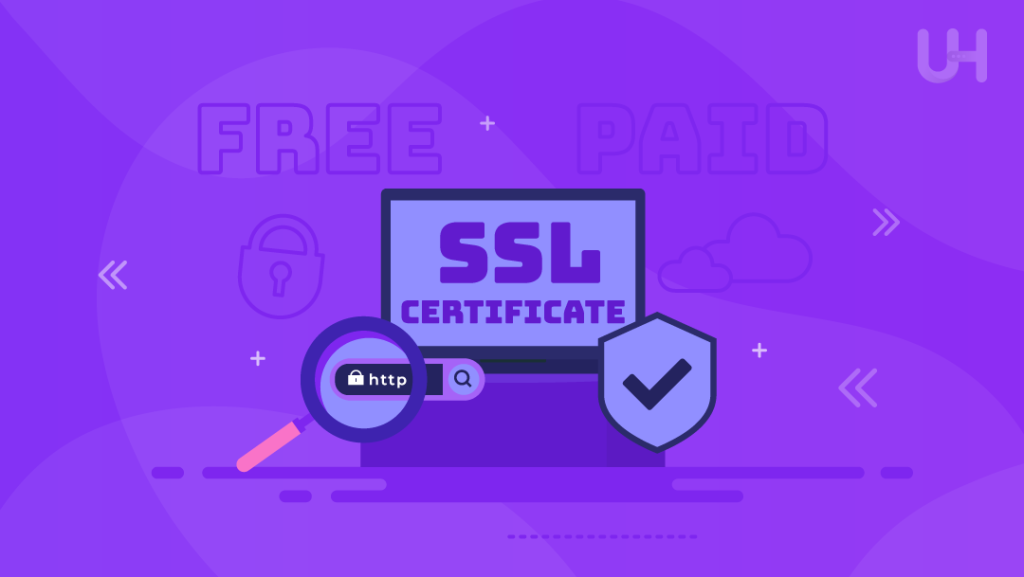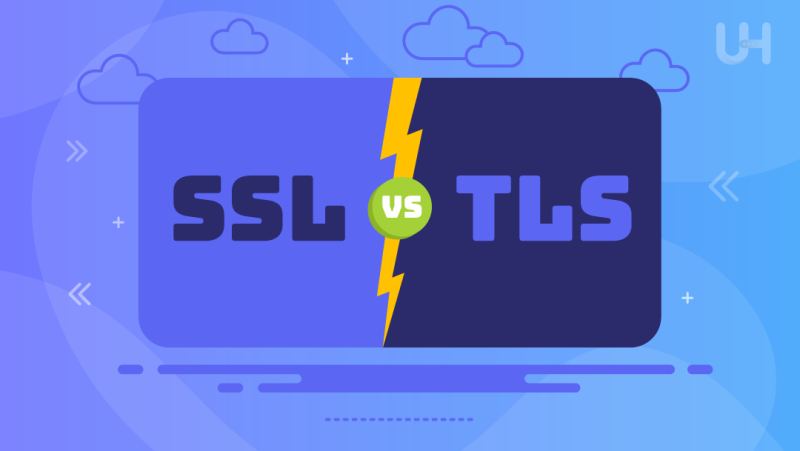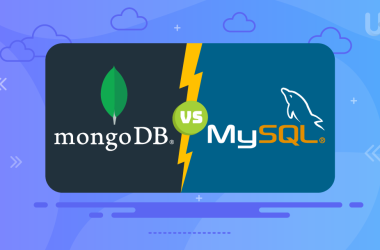SSL and TLS are like security guards but for the protection of your data online. They both work to make sure your personal stuff, like passwords and credit card numbers, stays safe when you’re browsing or shopping online. But even though they do similar jobs, there are some major differences between SSL vs TLS.
This blog is all about breaking down these differences between TLS vs SSL in simple terms so you can understand why they’re important for keeping your online activities secure.
What is SSL? (Secure Sockets Layer)
SSL, or Secure Sockets Layer, has a history rooted in the early days of the internet when online security was becoming a growing concern. Developed by Netscape in the 1990s, SSL was one of the pioneering cryptographic protocols designed to establish a secure connection between a web server and a browser. It allowed sensitive information, like credit card details and login credentials, to be transmitted securely over the internet.
Key Features and Functionality
SSL encrypts data transmitted between a client and a server (such as a dedicated web server). Ensuring that the information remains unreadable to unauthorized parties even if intercepted. It utilizes cryptographic algorithms to achieve this data encryption, creating a secure “tunnel” through which data can safely travel. Additionally, SSL includes mechanisms for authentication, allowing users to verify the identity of the server they are communicating with, thus mitigating the risk of man-in-the-middle attacks.
Common Applications and Protocols that Use SSL
SSL has been widely adopted across various applications and protocols on the internet. It is commonly utilized in securing websites with HTTPS (Hypertext Transfer Protocol Secure), ensuring that data exchanged between a user’s browser and the website’s server is encrypted and protected from eavesdropping. Additionally, SSL is employed in securing email communication (SMTP, IMAP and POP3), virtual private networks (VPNs), and other network services where confidentiality and integrity are paramount.
Upgrade Your Website Security Today!
Upgrade your website’s security with Ultahost’s SSL solutions. Protect sensitive data, build trust with your users, and stay ahead of cyber threats. Explore our SSL offerings now!
What is TLS? (Transport Layer Security)
Transport Layer Security (TLS) represents the evolution and successor to SSL (Secure Sockets Layer). TLS was developed as an improved version of SSL, incorporating advancements in cryptographic techniques and addressing vulnerabilities identified in SSL implementations. The transition from SSL to TLS marked a significant milestone in continuously enhancing internet security protocols.
Key Improvements and Enhancements
TLS introduced several key improvements over SSL, enhancing the security and reliability of encrypted communication over the Internet. One notable enhancement is the inclusion of stronger cryptographic algorithms, providing better protection against malware attacks. Additionally, TLS offers improved support for authentication mechanisms, ensuring the integrity and authenticity of the parties involved in a communication session.
Compatibility with SSL
While TLS is a distinct protocol from SSL, it maintains backward compatibility with SSL to facilitate the transition for existing systems and applications. This compatibility enables TLS to negotiate connections with both SSL-enabled and TLS-enabled servers, ensuring seamless communication across heterogeneous environments.
Current Versions and Updates
TLS continues to undergo refinement and improvement by releasing updated versions by standards organizations and industry stakeholders. The most recent versions of TLS, such as TLS 1.3, incorporate enhancements to strengthen website security and data protection. These updates address vulnerabilities discovered in earlier versions while introducing new features to adapt to evolving security threats and technological advancements. Regular updates and adherence to best practices in TLS implementation are essential for maintaining the integrity and security of encrypted communication on the Internet.
What are the Differences between SSL and TLS?
Here are the key differences between TLS and SSL:
Protocol Structure
SSL and TLS differ in their protocol structures. While both protocols establish secure connections between a client and a server, TLS introduces refinements and optimizations over SSL. The TLS handshake process typically involves more robust key exchange mechanisms and authentication procedures compared to SSL, enhancing the overall security of the communication session.
Encryption Algorithms and Cryptographic Strength
One of the significant differences between SSL and TLS lies in the encryption algorithms and cryptographic strength they employ. TLS incorporates more advanced cryptographic algorithms and protocols, offering stronger encryption and better resistance against brute-force attacks and cryptographic vulnerabilities.
Performance and Efficiency
TLS generally exhibits improved performance and efficiency compared to SSL, thanks to optimizations introduced in subsequent TLS versions. TLS implementations often feature enhancements to reduce latency and improve throughput without compromising security. These optimizations improve overall performance in TLS-secured communication, making it a more attractive option for modern web applications and services.
Support for Modern Security Features
TLS boasts broader support for modern security features and protocols compared to SSL. TLS implementations often include support for features like Perfect Forward Secrecy (PFS), which ensures that past encrypted communications cannot be decrypted even if the server’s private key is compromised. Additionally, TLS offers better compatibility with modern cryptographic standards and security protocols, enabling stronger protection against emerging threats and vulnerabilities.
Why is TLS or SSL Important for Your Website?

Security Implications for Websites and Online Transactions
The choice between SSL and TLS has significant security implications for websites and online transactions. Utilizing old or vulnerable protocols can expose sensitive user data to security threats, such as eavesdropping, data tampering, and man-in-the-middle attacks. In contrast, adopting TLS ensures stronger encryption and better protection against these risks, protecting online communication’s confidentiality, integrity, and authenticity.
Compliance Requirements and Industry Standards
Compliance requirements and industry standards play a crucial role in determining the choice between SSL vs TLS. Many regulatory bodies and industry standards, such as the Payment Card Industry Data Security Standard (PCI DSS) and General Data Protection Regulation (GDPR), mandate using secure encryption protocols like SSL and TLS to protect sensitive data during transmission. Adhering to these standards helps organizations meet regulatory requirements and demonstrates a commitment to maintaining robust security practices.
Impact on User Trust and Confidence
The security protocols employed by a website can significantly impact user trust and confidence in the platform. Websites that utilize SSL or TLS to secure their connections convey a commitment to protecting user privacy and data security. Conversely, websites that rely on outdated or insecure protocols may raise concerns among users about the safety of their personal information, leading to decreased trust and reluctance to engage in online transactions.
Best Practices for Implementing TLS and SSL
Choosing the Right Protocol Version
- Evaluate the specific requirements and compatibility considerations of your storage VPS before selecting a TLS or SSL version.
- Prioritize the adoption of the latest TLS versions, such as TLS 1.3, to benefit from improved security features and cryptographic enhancements.
- Transition away from outdated versions to mitigate vulnerabilities and ensure compliance with industry standards.
Regularly Updating and Patching
- Keep TLS and SSL implementations up to date by installing software updates, patches, and security fixes provided by vendors.
- Stay informed about emerging security vulnerabilities and threats affecting TLS and SSL protocols, and promptly apply necessary updates to mitigate risks.
- Establish a robust patch management process to ensure timely deployment of security updates across all relevant systems and applications.
Monitoring and Auditing Security Practices
- Implement comprehensive monitoring and logging mechanisms to track and analyze SSL/TLS-related events, such as handshake failures, cipher suite negotiations, and protocol versions used.
- Conduct regular security audits and vulnerability assessments to identify weaknesses and gaps in TLS and SSL configurations.
- Enforce strong access controls and authentication mechanisms to prevent unauthorized access to TLS/SSL configurations and sensitive cryptographic material.
Conclusion
While SSL laid the foundation for encrypted internet connections, TLS has emerged as the more advanced and secure successor, offering stronger encryption, enhanced authentication mechanisms, and better support for modern security features. However, the difference between SSL vs TLS is more than just technical differences; it represents a pivotal choice in ensuring the security, integrity, and trustworthiness of online communication.
UltaHost provides full protection for your website. By choosing UltaHost, you will receive both SSL, DDoS and Malware protection, as well as FTPS and SSH. Check out our SSH VPS hosting plans to discover a new dimension of security on the Internet!
FAQ
What is the difference between SSL and TLS?
SSL (Secure Sockets Layer) and TLS (Transport Layer Security) are cryptographic protocols used to secure communication over computer networks. While SSL was the predecessor to TLS, TLS is the more modern and secure version. TLS incorporates improvements over SSL and is considered more robust in terms of encryption, authentication, and overall security.
How do I know if a website is using SSL or TLS?
You can check if a website is using SSL or TLS by looking at the URL in your web browser. Websites secured with SSL/TLS typically have URLs that start with “https://” instead of “https://”. Additionally, most web browsers display a padlock icon in the address bar to indicate a secure connection.
What are some common protocols that use SSL and TLS?
SSL and TLS are commonly used to secure various internet services and applications, including web browsing (HTTPS), email communication (SMTP, IMAP, POP3), virtual private networks (VPNs), and secure file transfer protocols (FTPS, SFTP).
Why does the choice between SSL and TLS matter?
The choice between SSL and TLS matters because it directly impacts the security of your online communication. Using outdated or vulnerable protocols can expose sensitive data to security risks. TLS and SSL offer stronger encryption and better protection against cyber threats, making them the preferred choice for securing online transactions and data transmission.











